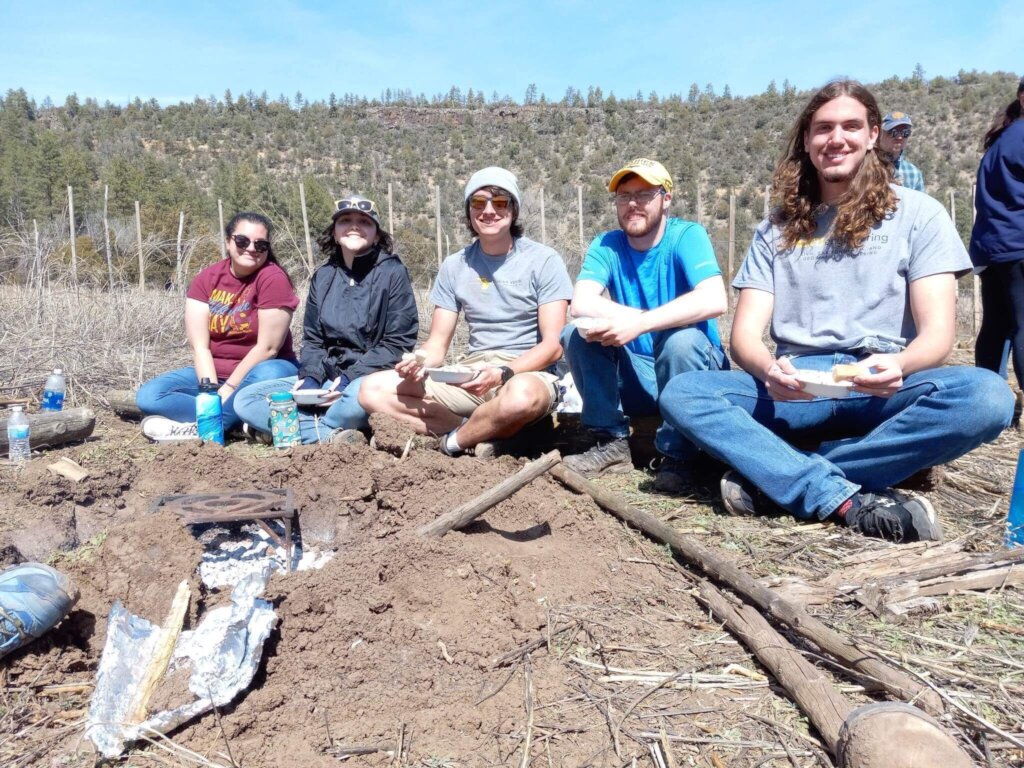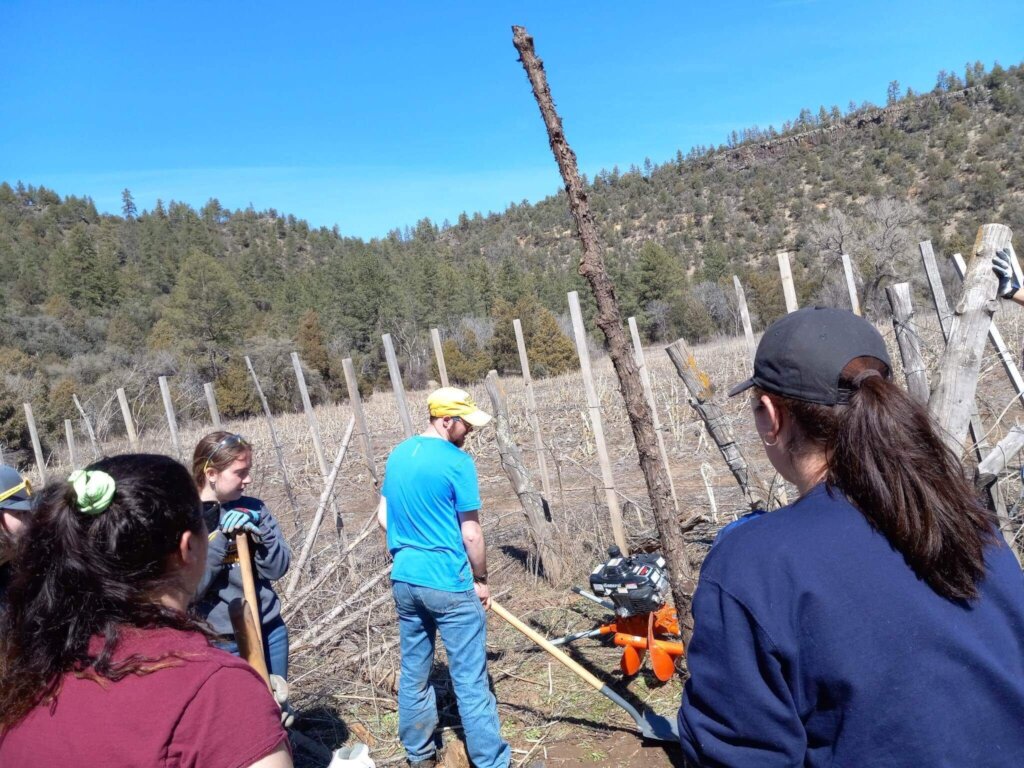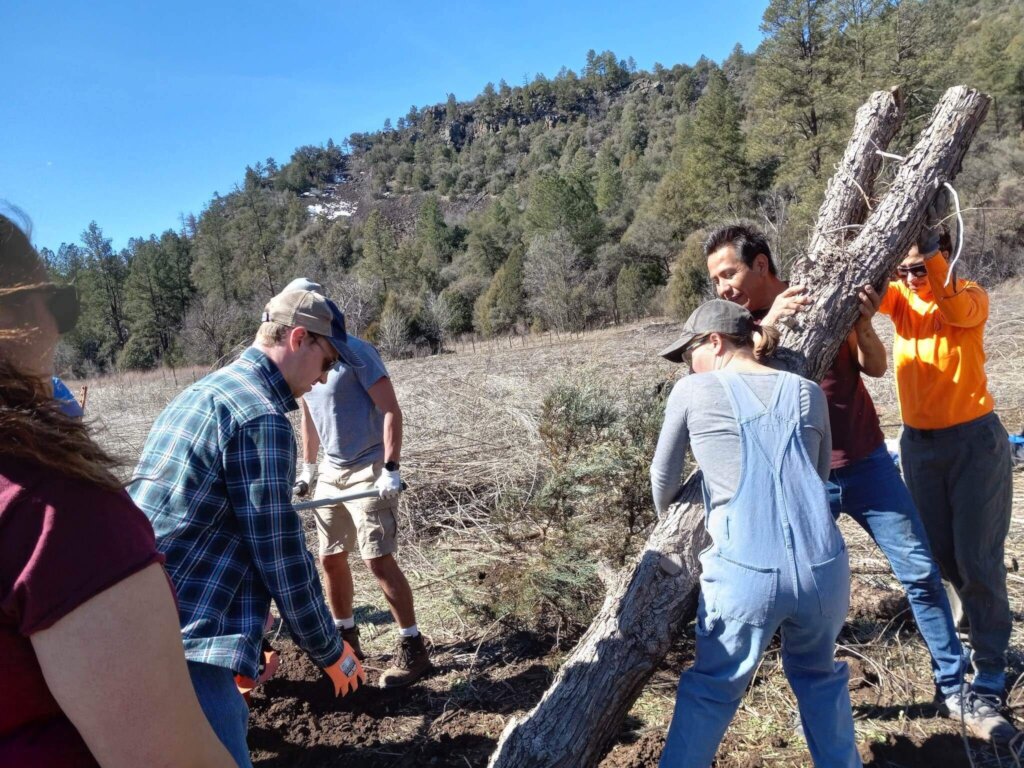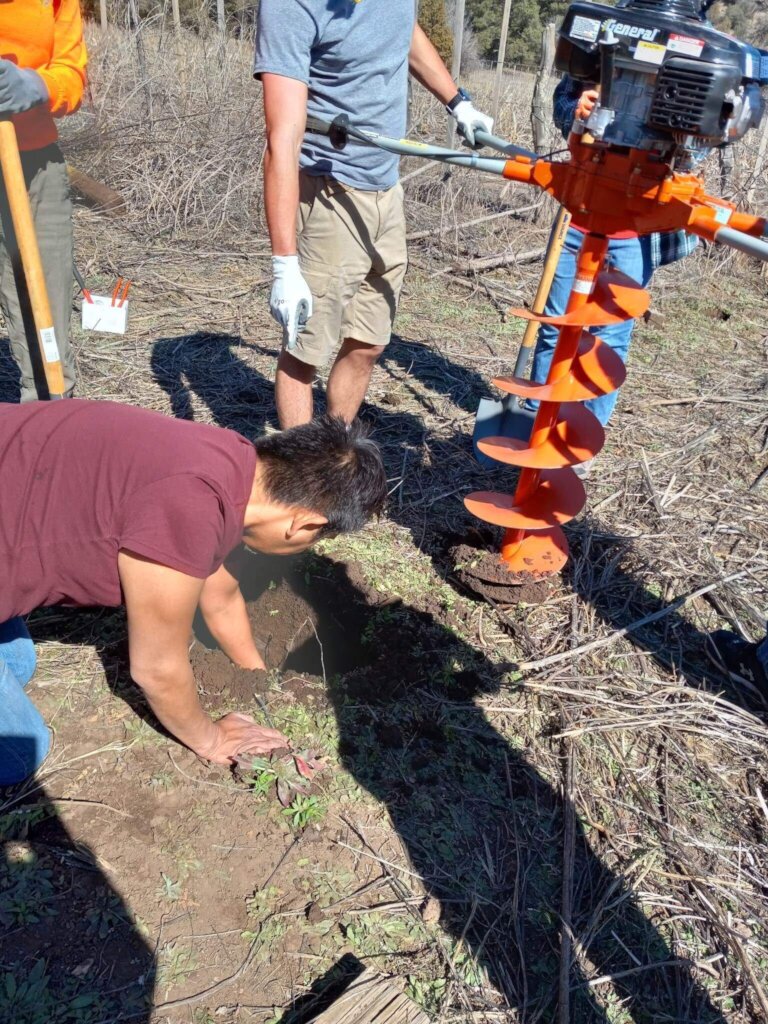By Muna Hijazi | Organizer
It is always an honor to continue our work with the Apache people of Arizona. This year, we’re proud to support community leaders therein forming the independent White Mountain Farmer’s Co-op.
The White Mountain Farmers’ Co-op is a new initiative of the Apache tribal members of northeast Arizona. They have identified a deep need within their community to restore their traditional lands, restart their communal agricultural practices, and provide local organic produce to their community.
With support from HSP and its network of donors, they hope to expand their efforts to cultivate indigenous and nutritious produce, as well as foster community through mutual aid and education. The co-op is in its earliest stages of development, with the Highland Support Project acting as its fiduciary as well as providing immediate seed money and technical assistance.
The Fort Apache Indian Reservation has been considered a food desert/apartheid with one grocery for approximately 15,000 tribal members living on the reservation and minimal access to fresh and healthy produce. There is one program on the reservation working to grow and distribute food but it is not enough to provide for the need from local institutions. Currently, there are multiple schools, the local jail, the addictions treatment center, two cafes, one local hospital, and the elderly food service program that would like to purchase local Apache-grown produce with a focus on cultural foods such as Apache corn products. The need cannot be met with just one farm. It has become clear for many of us who have been doing food sovereignty work in the community that we need more local food producers to meet the demand and the producers need more support to get their businesses off the ground.
This project will work to assess the needs of community farmers while building a network of support, partnership, and resources. Some key needs already identified that this project will include is access to water. Irrigation canals that were utilized for generations of Apache farming families have been used less and less and local food production has decreased with the advent of groceries stores and changes in modern life. The canals require hours of hard labor and some heavy equipment to be cleaned and restored for community farming use.
There is also a need for more training opportunities. The project will include site visits to other tribal farming co-ops that we know of and would like to learn from. There will also be a series of six pieces of training within the year based on toof p six topic areas requested by community farmers. Soil health is one important topic that will be included.
While several institutions have high demands for Apache-grown produce, the initial focus will be on schools. Cibecue Community School is one of two local schools willing to partner for a pilot project that could start a new vision for school (and more) food procurement. Additionally, both schools have gardens on site that our farmers can use to engage students in the process while building an understanding of local cultural foods and inspiring our future farmers.
Many Apache people have family plots of land that they would like to farm but lack the ability to restore them to a productive state. Large projects that require group effort include the crucial tasks of mending fences and clearing canals. In years past, these projects were accomplished by extended families coming together to work, eat and celebrate. Today, as family members are pulled further and further from one another, both literally and figuratively, this tradition has fallen to the wayside.
One major goal of the White Mountain Farmers’ Co-op is to create a community of tribal members who can and will assist one another with these land restoration projects. Once plots are restored, the co-op wants to help members cultivate their land with group efforts to plant, tend, and harvest crops. Importantly, this would include a seed-saving and seed-sharing program. This program entails an initial investment in starter seeds and someone who can coordinate and educate about seed-saving. Still, it should pay off in the long run, potentially even providing income for the co-op.
The co-op has also already hosted one alternative break service trip through HSP and is currently preparing to host another service team this upcoming June. Students from Michigan Tech partnered with co-op members in March 2023 on several projects, such as building raised beds for the Theodore Roosevelt School’s garden and land restoration work in members’ fields. The co-op plans to continue hosting service teams through HSP, in hopes of creating long-term commitments to indigenous land sovereignty and well-being. If you’re interested in serving with the Apache through an HSP service trip, contact us today.
Project reports on GlobalGiving are posted directly to globalgiving.org by Project Leaders as they are completed, generally every 3-4 months. To protect the integrity of these documents, GlobalGiving does not alter them; therefore you may find some language or formatting issues.
If you donate to this project or have donated to this project, you can receive an email when this project posts a report. You can also subscribe for reports without donating.
Support this important cause by creating a personalized fundraising page.
Start a Fundraiser


